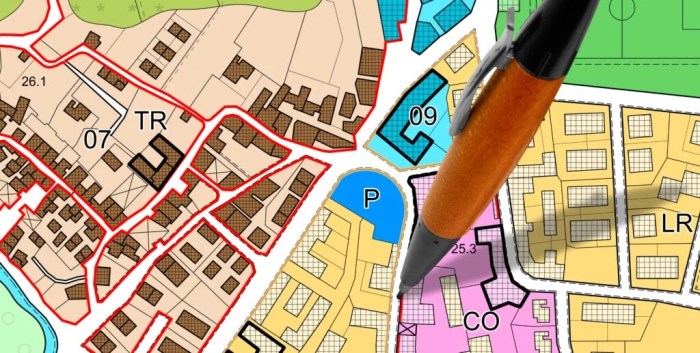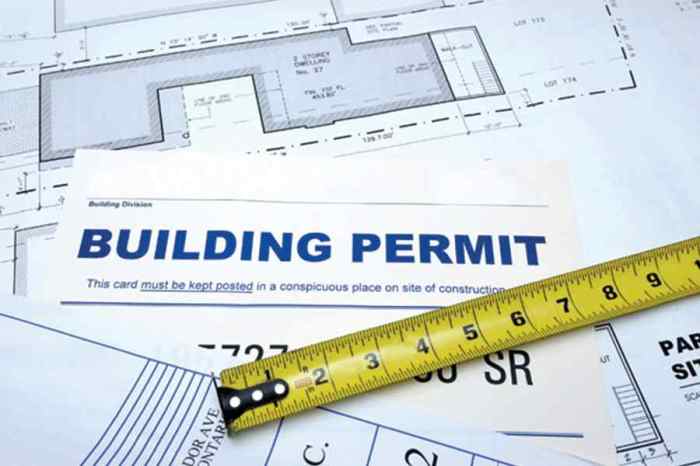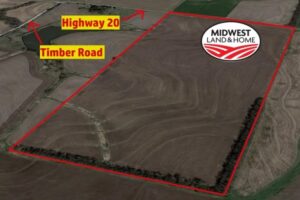
Understanding zoning laws for land development is crucial for anyone involved in real estate, whether you’re an investor, developer, or simply a curious homeowner. These regulations dictate how land can be used and ensure that developments align with community goals and public welfare. As we explore zoning laws, we will uncover their various classifications, the processes involved in making changes, and how they impact both residential and commercial properties.
From the basics of zoning classifications to the nuances of real estate transactions, zoning laws play a significant role in shaping our communities. Knowing what these laws entail can make or break a development project, making it essential to navigate these regulations with care.
Zoning Laws Overview
Zoning laws play a crucial role in land development, serving as a framework that regulates the use of property within specific areas. They aim to promote orderly growth, environmental sustainability, and the welfare of the community. By establishing guidelines for land use, zoning laws help ensure that neighborhoods remain functional, safe, and aesthetically pleasing.Zoning classifications are essential for determining how land can be utilized.
Different classifications dictate the types of buildings and activities permissible in various zones. Common zoning classifications include residential, commercial, industrial, and agricultural. Each classification has distinct implications for property use, influencing everything from the construction of homes to the operation of businesses. For instance, residential zones typically restrict activities that may create noise or traffic, while commercial zones are designed to accommodate businesses and retail spaces.
Zoning Classifications and Their Implications
Zoning classifications categorize land into specific use types, affecting property development and its surrounding environment. Understanding these classifications is vital for anyone involved in real estate or land development. Below is a summary of common zoning classifications and their implications:
- Residential Zoning: This classification primarily allows for the development of housing. It may further divide into single-family and multi-family units, impacting density and building height.
- Commercial Zoning: This allows for various businesses and services. It can include retail stores, offices, and restaurants, typically designed to encourage economic activity.
- Industrial Zoning: This classification is designated for manufacturing and industrial activities. It often includes warehouses and factories, with regulations to minimize environmental impact.
- Agricultural Zoning: This zoning type is aimed at preserving farmland and rural areas, often restricting development to maintain agricultural use.
The process for modifying zoning designations, including zoning changes and variances, is structured and requires thorough documentation. When seeking a zoning change, individuals or developers must typically submit a formal application to the local zoning board or planning commission. This process often involves:
- Preparing detailed project plans that highlight the intended land use and its benefits to the community.
- Gathering necessary documentation, such as environmental assessments and land surveys.
- Engaging with local officials and possibly the community to address concerns or objections.
- Attending public hearings where stakeholders can provide input and feedback.
Contacting the local zoning office is the first step in this process. They will provide specific guidelines on required documentation and procedures. Understanding the local zoning ordinances is essential to navigate these changes effectively.
“The proper application of zoning laws not only enhances property values but also ensures a harmonious community layout.”
Zoning Laws and Real Estate Transactions

Zoning laws play a critical role in real estate transactions, shaping the landscape of property development and usage. For real estate agents, understanding these laws is essential not only for compliance but also to effectively guide clients in their buying and selling decisions. Zoning regulations dictate what can be built where, impacting property values and marketability.Realtors must be aware of how zoning laws affect property transactions to provide informed advice and avoid potential legal issues.
Key factors include the zoning designation of the property, any restrictions on development, and the future zoning plans for the area. Being well-versed in these aspects not only helps in listing properties but also enhances the agent’s credibility and effectiveness.
Impact of Zoning Compliance in Transactions
Zoning compliance is crucial in the buying and selling of real estate for several reasons. Ensuring that a property adheres to local zoning laws can significantly affect the transaction’s success and the property’s value. Here are several key points to consider regarding zoning compliance:
- Property Value: Properties that are compliant with zoning regulations generally maintain higher values. Non-compliance can lead to reduced marketability or even legal action.
- Buyer Confidence: Buyers are more likely to invest in properties that meet zoning requirements, as this reduces the risk of future legal complications.
- Development Potential: Understanding the zoning designation can reveal the potential for property development or modifications, which may be appealing to buyers looking for investment opportunities.
- Legal Protection: Compliance with zoning laws protects both the buyer and seller from potential legal disputes that may arise from violations, ensuring smoother transactions.
- Future Planning: Knowledge of upcoming zoning changes can influence buying decisions, as properties in areas slated for development often see increased interest.
For real estate agents, staying informed about current zoning laws and potential changes in zoning policies is paramount. This knowledge allows them to advise clients effectively, ensuring that both buyers and sellers can navigate the transaction process without unexpected hurdles. Being proactive about zoning compliance not only enhances professional reputation but also ensures that clients are making informed decisions that align with their real estate goals.
Zoning Laws in Commercial Development
Zoning laws play a vital role in shaping commercial development projects. These legal frameworks govern how land can be used, ensuring that commercial activities align with community standards and development goals. Understanding the requirements and implications of zoning laws is crucial for developers, investors, and local governments to facilitate successful projects.Zoning regulations differ significantly between commercial and residential areas, impacting various aspects of property development.
Commercial zoning often accommodates a broader range of activities, including retail, office spaces, and industrial uses. This flexibility allows for innovation and economic growth while maintaining order within the community. However, it also comes with specific requirements that can affect the design, layout, and operation of commercial properties.
Comparison of Residential and Commercial Zoning Regulations
The distinction between residential and commercial zoning regulations is essential for understanding their impact on property development. Residential zones primarily focus on creating safe and livable environments for families, setting limits on building heights, lot sizes, and density. In contrast, commercial zones are designed to promote economic activity and often allow for higher density and larger structures. Key differences include:
- Use of Land: Residential zoning typically restricts land use to housing and associated facilities, while commercial zoning permits various businesses, including retail, offices, and warehouses.
- Zoning Density and Intensity: Residential areas often have limits on the number of units per acre, while commercial properties may have fewer restrictions, allowing for taller buildings and denser development.
- Parking and Accessibility Requirements: Commercial developments usually have stricter parking regulations to accommodate more visitors and employees, whereas residential areas may prioritize green space and community amenities.
The implications of these zoning laws affect how developers approach their projects. A thorough understanding of local zoning regulations can help ensure compliance and successful project completion.
Examples of Successful Commercial Properties
Numerous commercial developments have successfully adhered to zoning laws, demonstrating their positive impact on local economies. Such developments show how strategic planning can lead to revitalized neighborhoods and economic growth.Consider the following examples:
- Smithfield Foods Headquarters in Virginia: This commercial property was built under strict zoning regulations, blending modern corporate architecture with green space. Its adherence to zoning laws has not only created jobs but has also attracted other businesses to the area, revitalizing the local economy.
- Grocery Stores in Urban Areas: Stores like Whole Foods or Trader Joe’s often navigate commercial zoning laws to create accessible locations within cities. By following zoning guidelines, they enhance neighborhood services and provide fresh food options, leading to economic development in underserved areas.
- The High Line in New York City: This elevated park transformed a former railway line into a vibrant public space. Through innovative zoning strategies, the surrounding area saw a surge in property values and business opportunities, showcasing how zoning can drive urban redevelopment.
Each of these examples highlights how compliance with zoning laws can lead to greater community benefits, including job creation, improved services, and enhanced local character. The interaction between zoning laws and commercial property development is crucial for fostering economic vitality while ensuring that community needs are met.
Last Word

In summary, zoning laws for land development are more than just bureaucratic red tape; they are essential tools that help maintain order, safety, and economic viability in our neighborhoods. By understanding these laws, stakeholders can make informed decisions that benefit both their projects and the broader community. The journey of land development is intricate, but with the right knowledge of zoning, it becomes a pathway to sustainable growth and prosperity.
User Queries
What are zoning laws?
Zoning laws are regulations that define how land can be used, determining the types of buildings that can be constructed and the activities that can take place in various areas.
How do zoning laws affect property values?
Zoning laws can significantly impact property values, as they dictate the potential uses and development opportunities available, influencing demand and desirability.
Can zoning laws be changed?
Yes, zoning laws can be changed through a formal process that often involves public hearings, community input, and approvals from local government bodies.
What is a zoning variance?
A zoning variance is an exception to the existing zoning regulations, allowing a property owner to deviate from specific requirements under certain conditions.
Why is zoning compliance important in real estate?
Zoning compliance is crucial for ensuring that property developments meet legal standards, thereby avoiding fines, lawsuits, or the potential for redevelopment issues in the future.





